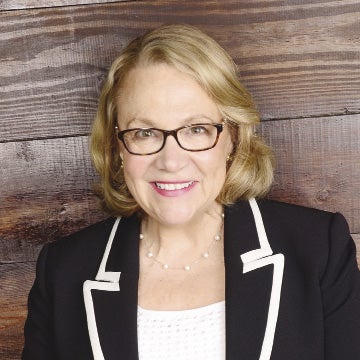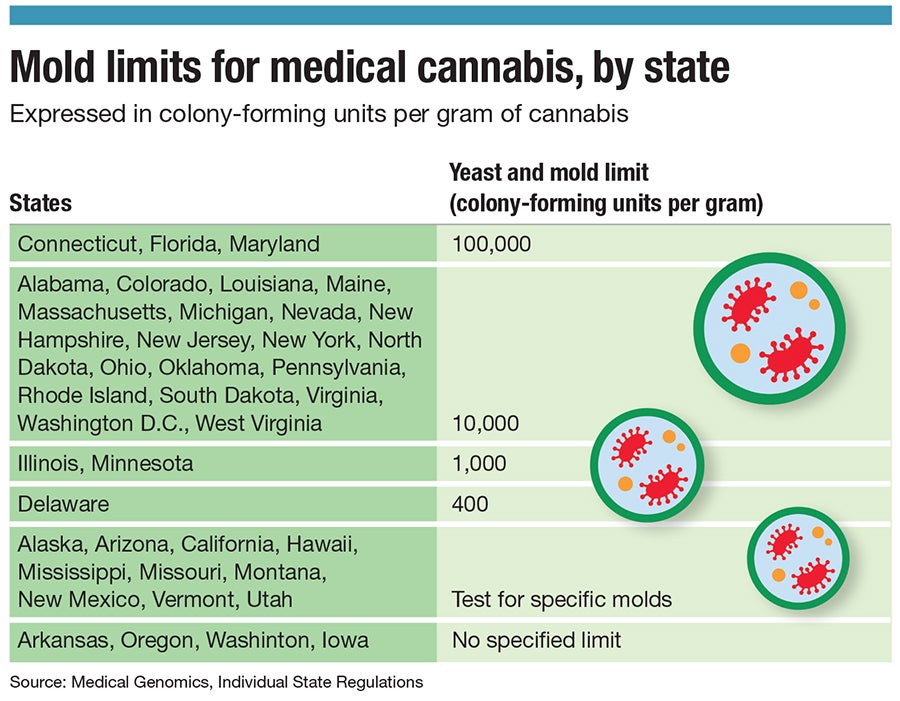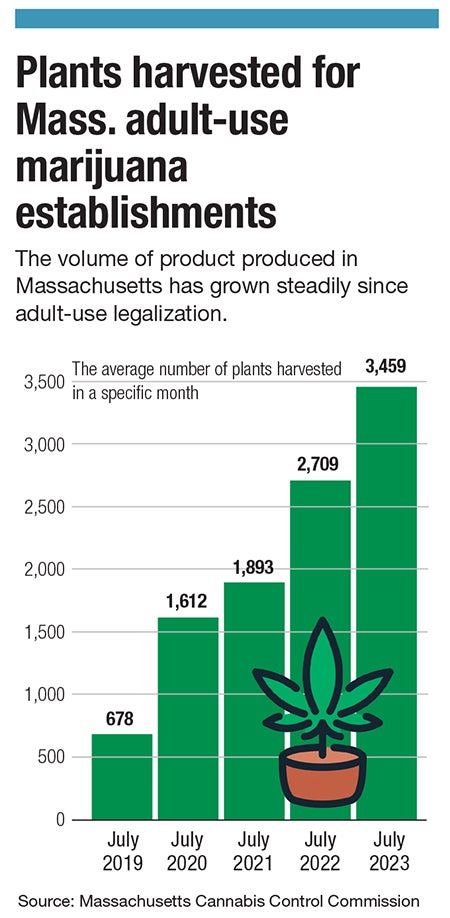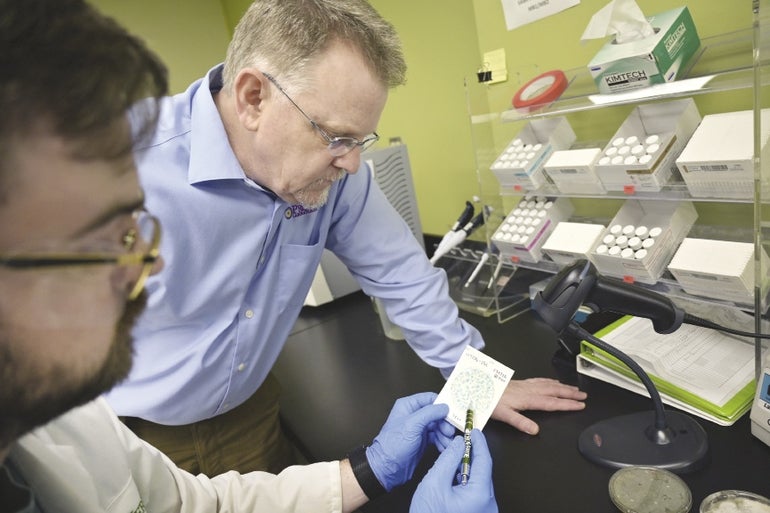Companies are sounding the alarm on the state’s inconsistent product safety testing standards.
Get Instant Access to This Article
Subscribe to Worcester Business Journal and get immediate access to all of our subscriber-only content and much more.
- Critical Central Massachusetts business news updated daily.
- Immediate access to all subscriber-only content on our website.
- Bi-weekly print or digital editions of our award-winning publication.
- Special bonus issues like the WBJ Book of Lists.
- Exclusive ticket prize draws for our in-person events.
Click here to purchase a paywall bypass link for this article.
As Massachusetts was the first market east of the Mississippi River to sell adult-use marijuana, the industry has been filled with excitement since sales first began in 2018. It’s also been beset by problems, including regulatory problems.
In the early years, the main problems were a lack of diversity among cannabis businesses, even though the ballot initiative legalizing marijuana in the state specifically called for the industry to benefit those negatively impacted by the War on Drugs; and individual municipalities trying to extract large payments from business, in order for those companies to obtain host communities agreements before they could open. Both of these issues had to be resolved in a cannabis industry reform law passed by the Massachusetts legislature in 2022.
Now, industry players – particularly Central Massachusetts testing companies – are sounding the alarm on the state’s inconsistent product safety testing standards, which they say are filling shelves with potentially harmful, moldy products; encourage dishonesty among testing companies; and mislead consumers into how much high-inducing THC is in the products they purchase.
“The biggest problem is that nobody is looking,” said Peter Ianuzzi, CEO at Milford cannabis testing firm Proverde Laboratories.

Based on new rules under consideration, the agency in charge of regulating the industry, the Massachusetts Cannabis Control Commission, agrees changes need to be made.
“When the regulations were written, we didn't think about things like lab shopping. It needs to be reevaluated,” said Shannon O’Brien, chair of the CCC.
These issues are all set against the backdrop of new legislation saying the CCC itself needs an oversight board, as lawmakers work to resolve allegations the CCC’s response to business concerns are inefficient, slow, unnecessarily harsh, and lack clear communication, said state Sen. Michael Moore (D-Worcester).

“I saw a lack of response and concern for their impacts on the industry, on companies, and people trying to invest,” said Moore, who introduced legislation with state Rep. Daniel Donohue (D-Worcester) to create an independent auditor at the CCC, similar to the oversight of the Massachusetts Gaming Commission.
The legislation is in committee and doesn’t have a specified date for a vote, said Moore.
Moldy marijuana
At ProVerde’s testing facilities in Milford, the primary concern for consumer safety is mold in products.
The CCC’s required testing, a PCR test that detects genetic materials for certain organisms, works well for specific types of microbes but not others, said Christopher Hudalla, founder and chief scientific officer at Proverde.
This means certain types of mold spores are well detected, and therefore their products are prevented from being purchased by consumers. However, other types of mold spores can still be present in products and not detected, resulting in a false negative test, said Hudalla. Those false negatives mean consumers of cannabis in Massachusetts may be purchasing and ingesting products containing harmful mold spores.
Culture-based tests of marijuana products would be more accurate, said Hudalla, but testing companies are discouraged from using more stringent tests, as it hurts their business.
Massachusetts has 13 CCC-approved cannabis testing facilities. If one or two start testing more stringently and reject a higher percentage of a marijuana company’s product – and thus causing the company to throw out that product – then marijuana companies will use the less stringent testing facilities, Hudalla said.
This is how worst practices easily turn into standard practices, without sufficient oversight and implementation of regulations, said Ianuzzi.

Another concern is a lack of a scientific expert among leadership at the CCC, said Hudalla.
“For them to not have a microbiologist on staff is a problem,” said Hudalla.
The issue of mold in products is a concern, too, to Michael Kahn, founder and CEO of MCR Labs in Framingham. There is not enough clarity from the CCC about which tests labs should use to be on equal footing with one another and produce the most accurate results.
The issue of lab shopping, in which wholesalers will seek out labs that will provide negative mold test results at higher rates, bringing their accuracy into question, is what has ProVerde and MCR concerned about the impact on business. Labs using less accurate tests, with more false negatives, can be more appealing to wholesalers trying to turn a profit.

“The root of the problem is that the regulations and enforcement provide zero incentive for accuracy in testing,” said Kahn.
Proposed new CCC testing rules
CCC, for its part, is willing to acknowledge it may be overdue for a reexamination of regulations to catch up with the science and the industry, said O’Brien. Conversations about changing how labs are regulated are already happening.
“We have now recognized that allowing businesses to deploy their own choice does not provide us the consistency we need in the market,” she said.
The research subcommittee of the Cannabis Advisory Board, which provides guidance to the CCC, in a June report recommended a number of reforms to improvise testing of cannabis. They include:
• making data about fail rates in testing available to the public,
• convening a permanent working group to regularly make recommendations about both testing and labeling, including a toxicologist, microbiologist, mycologist, plant biologist, chemist, consumer, patient advocate, retailer, manufacturer, and cultivator
• defining total THC and clarifying related guidance.
The recommendations still need approval from the full CAB board, before they are sent to the CCC for consideration.
After a product from a wholesaler passes a safety test at a laboratory, retailers have no obligation to do further testing of the cannabis products they will sell. There is currently no secret shopper program at the CCC to randomly test retail products available for consumer purchase, a concern for Kahn.
A secret shopper program may soon be on the table at the commission, O’Brien said.

Furthermore, the CCC understands the concern some in the industry have, and the commission is working on becoming more nimble and transparent, O’Brien said. She has been the chair for 11 months and understands the frustrations from legislators and the people in their districts. Her primary role, she said, is improving their functionality from the inside so that legislation is not necessary.
CCC is working to become more collaborative to prevent slowdows in communication in the future, she said.
“We need to make sure we are internally responsive and transparent,” said O’Brien.
How high will it get you?
CAB’s proposed rule changes for the CCC address a secondary concern of testing laboratories, too: how much high-inducing THC is actually in each product being sold.
Massachusetts doesn’t have an agreed-upon calculation for total THC potency levels in a product, which impacts consumer safety and is potential consumer fraud, as companies could use testing facilities that inflate the amount of THC actually in each product, Hudalla said.
For an article published in December, Commonwealth Magazine sent several cannabis products purchased at a retailer to various Massachusetts testing facilities, and each of the testers found different levels of THC potency in the same product. Part of the issue was each facility had its own standards for how to calculate THC potency.
ProVerde has asked CCC for guidance on how it should perform the calculations to match the rest of the state, but the CCC could not provide an answer, Hudalla said.
Working on clarifying and leveling this aspect is one of the potential recommendations that may be before the CCC, based on the June report.
Truth in THC potency labels is a concern at MCR too, said Kahn.
“People are buying products under the assumption that the label is true. People are getting ripped off. They have a right to know what they’re consuming,” he said.
Whether the concern is mold or unstandardized labeling practices, it ultimately has the biggest impact on the individuals making purchases at the end of the line, said Ianuzzi from ProVerde. Improvements at the CCC are necessary for their protection.
“At the end of the day, consumers pay the price,” said Ianuzzi.

